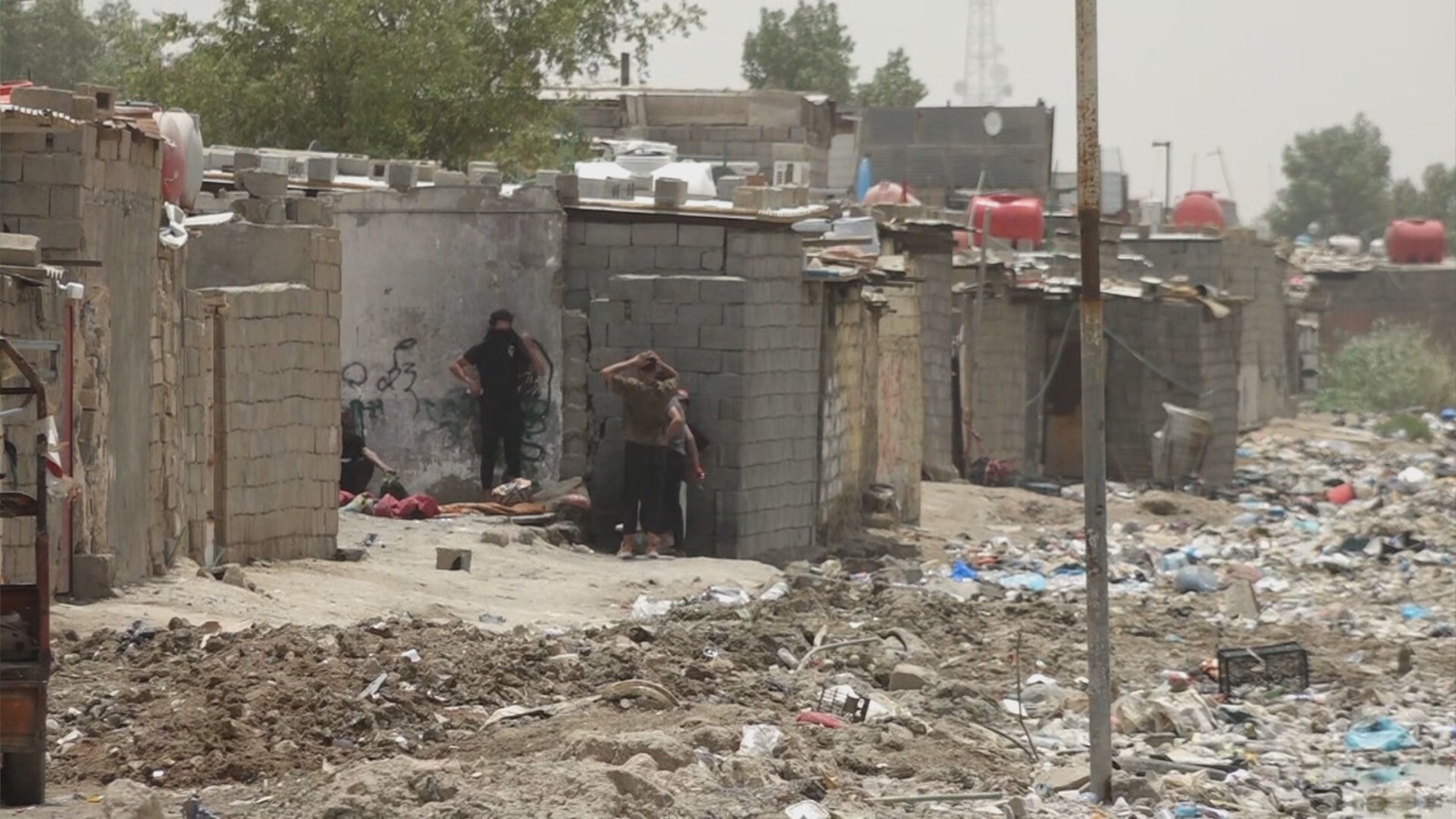In Iraq’s Oil Capital, Poverty and Pollution Prevail
Despite fueling over 70% of Iraq’s oil output, Basra suffers from poverty, pollution, and neglect. Residents endure disease, unemployment, and decaying infrastructure, as billions in petrodollar revenues remain unpaid—highlighting Iraq’s deep governance and equity crisis.

By Kamaran Aziz
ERBIL (Kurdistan24) – In the heart of Iraq’s oil empire, the southern province of Basra stands as a poignant symbol of disparity. Despite being home to more than 70% of Iraq's oil production and serving as the country's primary economic engine, Basra is plagued by poverty, pollution, and an alarming lack of basic services—a paradox that has deepened over the years.
Kurdistan24 correspondent reports from Basra reveal harrowing living conditions in neighborhoods marred by garbage, stagnant sewage, and disease.
In one of the province’s many impoverished quarters, Umm Mohammed described the grim reality: “We live amid trash. Is it conceivable for an Iraqi to live like this? Every day our children fall ill from the stench. If we had an alternative, we would leave immediately.”
Another resident, Umm Jawad, offered a similar account: “I have five sons, all unemployed. We survive on a pension of just 317,000 dinars. True, we don’t pay rent, but we live in real misery—amid filth—and we see nothing of Basra’s oil except disease.”
Basra's poverty rate currently exceeds 17%, despite the province’s contribution to national revenues through its oil reserves, including key fields such as Rumaila and West Qurna.
Environmental degradation compounds the suffering, with increasing reports of cancer, gastrointestinal, and respiratory diseases linked to polluted air and water.
Economic expert Dr. Nabil Al-Marsoumi told Kurdistan24 that the Ministry of Finance owes Basra more than 43 trillion dinars in petrodollar revenues. “Yet neither the local government nor its MPs have been able to secure the province’s rights fairly and justly,” he said.
Adding insult to injury is the rising presence of foreign labor in Basra's oil and service sectors, which residents say exacerbates local unemployment. Despite being at the epicenter of Iraq's economic activity, many of Basra’s young men are left jobless.
The frustration has reached the streets. As previously reported by Kurdistan24, a peaceful protest by hundreds of petroleum engineering graduates in Basra turned violent on Sunday after security forces forcibly dispersed demonstrators demanding employment in the oil sector.
Demonstrators from engineering and petroleum-related fields, including geology, called for inclusion in ministerial contracts with oil companies operating in Basra. Hasan al-Shawi, a representative of the protesters, stated, "Graduates of oil-related fields have been protesting for months without any meaningful response from the authorities." Despite repeated promises, he added, "not a single step has been taken to fulfill our demands."
Though initially peaceful, the protest descended into chaos after security forces intervened, reportedly injuring at least one demonstrator. Protesters emphasized their commitment to non-violent advocacy and vowed to continue until their demands are addressed.
Environmental and public health crises further compound the region’s hardships. Residents near oil sites report alarming rates of cancer and respiratory illness. Rumaila Field, one of the world’s worst offenders for associated gas flaring, has been linked to the death of Ali Hussein Jalud, a young man who developed leukemia after prolonged exposure. His family has pursued legal action against British Petroleum (BP), which operates the site.
“The toxic smoke is part of our daily life,” said Hussein Jalud’s father in a report by Fikra Forum. “We wake up to it every morning. It took my son, and I don’t want to lose more.”
Despite vast oil revenues and Iraq’s largest budget in history—198.9 trillion dinars annually for three years—corruption and mismanagement persist. Iraq remains among the world’s most corrupt countries, according to Transparency International.
As Kurdistan24 has previously reported, pollution affects more than half the province. Soil degradation has reached 80%, while Shatt al-Arab's water is laden with microbial and chemical contaminants.
The crisis has revived calls for regional autonomy. Activists and officials in Basra have pointed to the Kurdistan Region’s model of self-governance under Article 119 of the Iraqi Constitution, advocating for similar status to gain control over local resources and decision-making.
Safaa Khalaf, an investigative journalist, told Fikra Forum that companies routinely exploit legal loopholes to evade environmental responsibilities. He noted that laws requiring a 10 km buffer between oil sites and residences are often flouted, with distances reduced to as little as 5 km due to population pressure and administrative leniency.
Health authorities have remained largely silent, and official data on cancer rates is absent. Media inquiries are discouraged, creating a veil of secrecy that deepens public anger and distrust.
For protesters like al-Shawi, the fight is no longer just about jobs—it’s about justice. “We are qualified professionals,” he said. “We want to serve our country, but we are being ignored while the wealth beneath our feet enriches others.”
With worsening health outcomes, rising unemployment, and deepening public resentment, Basra has become a national symbol of Iraq’s chronic mismanagement and failure to translate resource wealth into human development. The call is no longer just for employment—it is for dignity, accountability, and the right to breathe clean air in a land overflowing with black gold.
Public frustration is also fueled by the lack of essential infrastructure. Entire districts still lack sewage systems, potable water, and reliable electricity. For many, daily life has become a test of endurance, contradicting the image of Basra as Iraq's economic capital.
With its vital seaports and energy assets, Basra should, in theory, be a beacon of prosperity. Instead, it has become a case study in mismanagement, corruption, and socio-economic injustice. As long as the oil wealth remains disconnected from the welfare of its people, Basra's paradox will continue to fester, raising pressing questions about governance and equity in Iraq.
Fouad Al-Halfi – Kurdistan24 Correspondent in Basra – contributed to this report.